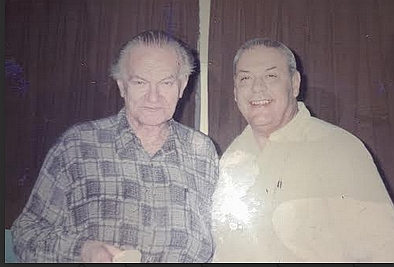Current Issue
Dr. Francis Robicsek in Memorial
Horacio Edelberto Perez-Lopez1,*, Herminia Palenzuela-Lopez2
1Institute of Cardiology and Cardiovascular Surgery, Havana, Cuba
2William Soler Paediatric Cardio Center, Havana, Cuba
*Corresponding author: Dr. Horacio Edelberto Perez-Lopez, PhD, Institute of Cardiology and Cardiovascular Surgery, Havana, Cuba, Phone: 5352794686, E-mail: [email protected]
Received Date: August 14, 2025
Publication Date: September 16, 2025
Citation: Perez-Lopez HE, et al. (2025). Dr. Francis Robicsek in Memorial. Cardiac. 5(1):11.
Copyright: Perez-Lopez HE, et al. © (2025).
LETTER TO EDITOR
A few years ago, in 2020, I learned of the death of Dr. Francis Robicsek at the age of 95. This cardiovascular surgeon is known to all cardiovascular surgeons because he described the sternal closure procedure after sternal dehiscence, especially due to mediastinitis. He was Hungarian by birth, and practiced in the United States until his death. An excellent surgeon and professor who trained generations of cardiovascular surgeons.
Although he was not a fan of socialist countries, he decided to come to Cuba, knowing that Caribbean socialism was developing, and he did so in 2003.

As a cardiovascular surgeon, I was given the opportunity to treat him while we were in the country. I did so, and I was with him almost the entire time for 15 days. I traveled throughout Havana and the province, and in Havana, I visited almost the entire Old Havana and its surrounding areas. I visited the Reformed Presbyterian Church in the Luyano neighborhood twice, spending time with parishioners and fellow church members.
In one of these conversations, he turns to politics, and while arguing with her, he says, "Don't argue with me about politics. I was born into monarchy, then fascism, then socialism, and now I live under capitalism."
He visited my institute and captivated the attention of the surgeons and doctors there through his simple conversations and anecdotes.
I had the opportunity to tell him several stories from his life. I think one of the funniest incidents was when one day he was getting off an elevator with his friend and assistant surgeon and he collapsed from a heart attack. Using only the scissors he had at hand, he opened his chest and began cardiac massage. When he noticed that he was fibrillating and in the middle of a corridor, he broke a light fixture and gave his heart an electric shock with a 110-volt wire that stopped the fibrillating and started beating normally. He took him to the salon, closed his chest, and a few weeks later this friend started working with him again.
I told him that something similar happened to me when I was studying medicine. During a lecture in the theater of the children's hospital, a student fainted and another, after examining him, said that he had a heart problem. From the operating room, Professor Dr. Julio Taín, who was about to operate on a child, opened his chest with a scalpel and performed cardiac massage. When the heart rate returned to normal, he took him to the operating room to close the chest. This student completed his medical degree with us.
Professor Robicek declined to comment on his visit, although I know he was impressed. Unfortunately, the world has lost a legend in cardiac surgery; his name will be remembered for years to come, for his sternal closure technique.
This short article serves as our tribute to such a talented colleague.
 Full-Text
Full-Text  PDF
PDF